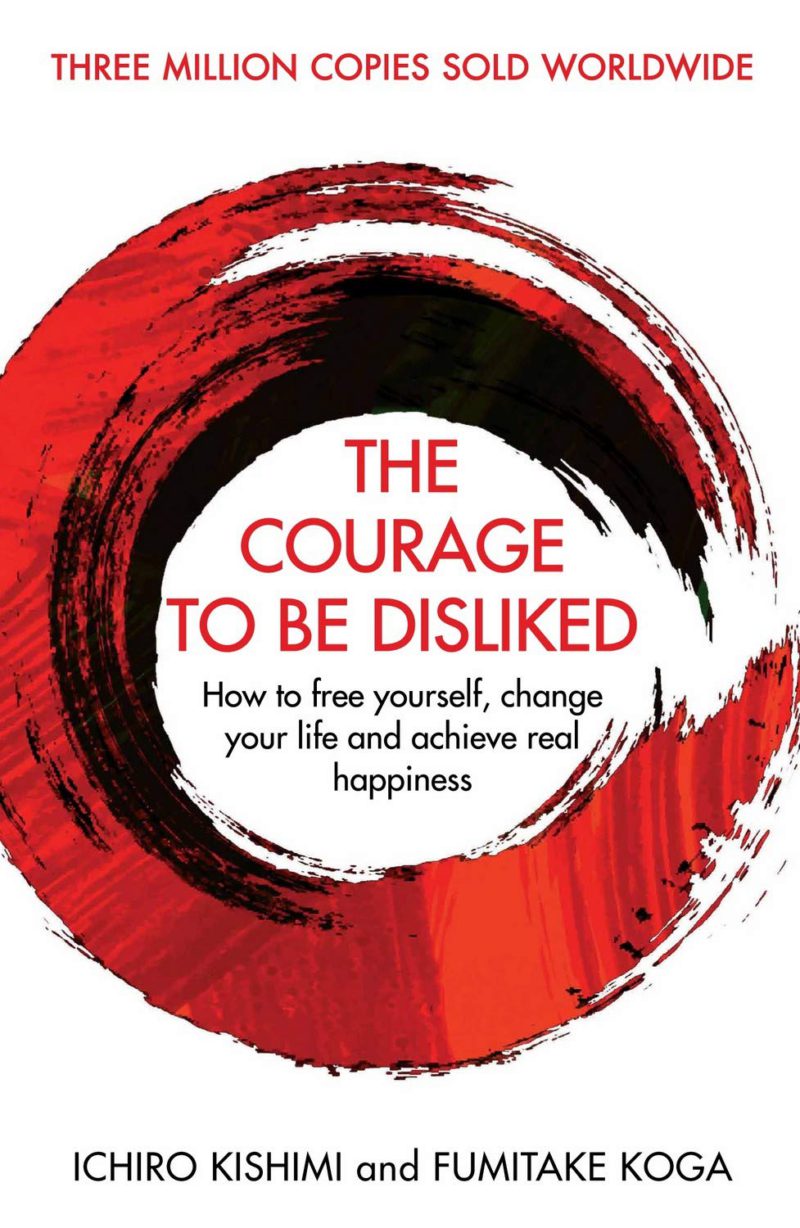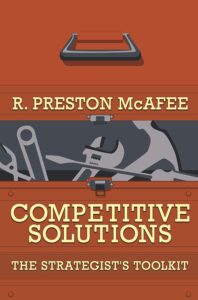You can get rid of anger right now
It’s making the switch from attachment to self (self-interest) to concern for others (social interest) and gaining a sense of community feeling. Three things are needed at this point: “self-acceptance,” “confidence in others,” and “contribution to others.”
Subjects: Psychology
This book The Courage to be Disliked is a rare combination of self help and psychology book. It is written in a conversation format. As the authors say “ The youths engaged in dialogues with Socrates never agree with what he says at the outset. They refute his statements thoroughly. This book is continuing in the tradition of philosophy since Socrates, and that is why it follows the format of a dialogue between a philosopher and a youth.” Also as “Socrates’s thought was conveyed by Plato. Kishimi (author) would like to be a Plato for Adler,”
Some of the interesting ideas presented in the book are:
Emotions according to Goals
If you have anxiety and fear of going out. Then according to teleology, because you had the goal of not going out beforehand, you are manufacturing a state of anxiety and fear as a means to achieve that goal. According to Adler, “No experience is in itself a cause of our success or failure. We do not suffer from the shock of our experiences—the so-called trauma—but instead we make out of them whatever suits our purposes. We are not determined by our experiences, but the meaning we give them is self-determining.” In another example, in order to fulfil the goal of shouting, you create an emotion of anger. In a word, anger is a tool that can be taken out as needed.
Inference: It means you can get rid of anger, or anxiety or any other emotion, right now if you want to.
When did you decide to be unhappy
“At some stage in your life, you chose “being unhappy.” It is not because you were born into unhappy circumstances or ended up in an unhappy situation. It’s that you judged “being unhappy” to be good for you.
How do you justify this? Why did you choose to be unhappy? I have no way of knowing the specific answer or details. Perhaps it will become clearer as we debate this.”
You choose to be happy or unhappy. You think unhappy is the most convenient way in this situation. You are trained to be unhappy according to a situation. If you choose a new lifestyle, no one can predict what might happen to the new self, or have any idea how to deal with events as they arise. It will be hard to see ahead to the future, and life will be filled with anxiety. A more painful and unhappy life might lie ahead. Simply put, people have various complaints about things, but it’s easier and more secure to be just the way one is.
“I have a young friend who dreams of becoming a novelist, but he never seems to be able to complete his work. According to him, his job keeps him too busy, and he can never find enough time to write novels, and that’s why he can’t complete work and enter it for writing awards. But is that the real reason? No! It’s actually that he wants to leave the possibility of “I can do it if I try” open, by not committing to anything. He doesn’t want to expose his work to criticism, and he certainly doesn’t want to face the reality that he might produce an inferior piece of writing and face rejection. He wants to live inside that realm of possibilities, where he can say that he could do it if he only had the time, or that he could write if he just had the proper environment, and that he really does have the talent for it. In another five or ten years, he will probably start using other excuses like “I’m not young anymore” or “I’ve got a family to think about now.”
All problems are interpersonal relationship problems.
If all interpersonal relationships were gone from this world, which is to say if one were alone in the universe and all other people were gone, all manner of problems would disappear.
Pursuit of Superiority
When we refer to the pursuit of superiority, there’s a tendency to think of it as the desire to try to be superior to other people. Adler says that on the same level playing field, there are people who are moving forward, and there are people who are moving forward behind them. Though the distance covered and the speed of walking differ, everyone is walking equally in the same flat place. The pursuit of superiority is the mind-set of taking a single step forward on one’s own feet, not the mind-set of competition of the sort that necessitates aiming to be greater than other people.
So one of the implications is that when you are challenged to a fight, and you sense that it is a power struggle, step down from the conflict as soon as possible. Do not answer his action with a reaction. That is the only thing we can do. Again coming to anger, you don’t need to rely on the tool of anger. Irascible people do not have short tempers—it is only that they do not know that there are effective communication tools other than anger.
At some point the reader might relate to the youth in the book:
“Youth: Maybe what you are saying is right. Actually, I’m sure it is, and courage really is what I am lacking. I can accept the life-lie as well. I am scared of interacting with people. I don’t want to get hurt in interpersonal relationships, and I want to put off my life tasks. That’s why I have all these excuses ready. Yes, it’s exactly as you say. But isn’t what you are talking about a kind of spiritualism? All you’re really saying is, “You’ve lost your courage, you’ve got to pluck up your courage.” It’s no different from the silly instructor who thinks he’s giving you advice when he comes up and slaps you on the shoulder and says, “Cheer up.” Even though the reason I’m not doing well is because I can’t just cheer up!”
The conversation goes on till the philosopher clears all doubts of the youth or the reader. You would eventually begin to think you are the youth and these are your doubts
“YOUTH: So you are saying that the reason I am not happy is that I don’t have a feeling of contribution?
PHILOSOPHER: That is correct.”
Separation of Tasks
Remember the words of the grandmother: “You’re the only one who’s worried how you look.” Her remark drives right to the heart of the separation of tasks. What other people think when they see your face—that is the task of other people and is not something you have any control over.
Live in the Moment
The Book ends with the message that the greatest life-lie of all is to not live here and now. It is to look at the past and the future, cast a dim light on one’s entire life, and believe that one has been able to see something. Until now, you have turned away from the here and now and shone a light only on invented pasts and futures. You have told a great lie to your life, to these irreplaceable moments.
This message Here and Now is there in lot of self help/spirituality books, probably most difficult to implement.
Complement this with authors another book ‘ The Courage to be Happy’





